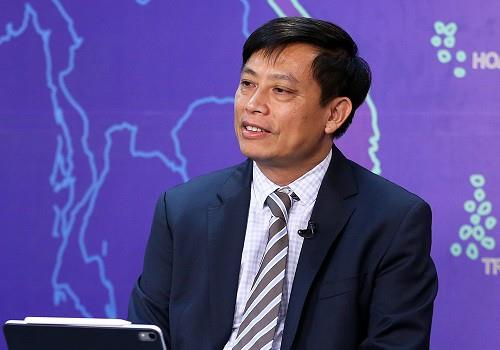The Ministry of Industry and Trade (MoIT) is building infrastructure for the national digital transformation process, focusing on smart manufacturing and smart energy, to develop the digital economy. Head of the MoIT’s E-Commerce and Digital Economy Department Dang Hoang Hai speaks with Vietnam News Agency about the ministry’s action plan in this area.

The Ministry of Industry and Trade (MoIT) is building infrastructure for the national digital transformation process, focusing on smart manufacturing and smart energy, to develop the digital economy. Head of the MoIT’s E-Commerce and Digital Economy Department Dang Hoang Hai speaks with Vietnam News Agency about the ministry’s action plan in this area.
Could you please tell us about the MoIT’s efforts to develop infrastructure for national digital transformation?
Politburo Resolution 52 has guidelines and policies to ensure active participation in the Fourth Industrial Revolution and expresses the views and determination of the Communist Party of Viet Nam in promoting national digital transformation, with a focus on digital economy development.
Regarding the development and construction of infrastructure, the MoIT focuses on major issues like smart manufacturing, smart energy, e-commerce and digital transformation in business.
In particular, the E-Commerce and Digital Economy Department is concentrating on building a master plan for e-commerce development in 2021-25, which will be closely linked with strategies and policies on the development of digital economy and national digital transformation.
E-commerce is one of the pioneering areas of the digital economy, where the advanced technologies of Industry 4.0 have been widely applied to increase the efficiency of the business, contributing to modernising the distribution network, improving the competitiveness of enterprises and expanding domestic and export markets.
The construction and development of an e-commerce infrastructure system is one of the pillars for the digital economy, including a national e-commerce payment system, an online management system for order and delivery services, an electronic invoice system for online sales transactions, a corporate prestige rating system in e-commerce and an electronic authentication system.
Can the implementation of e-commerce catch up with the world's new e-commerce trends, serving production and business as well as creating modern shopping habits for consumers?
Yes, I think so.
Online Friday (an online shopping day) is part of many activities to create shopping habits for customers. This event has been regularly held nationwide.
This year, my department will hold the Digital Technology and E-Commerce Experience Week in Ha Noi, HCM City and Da Nang, which is expected to give people practical experience and knowledge about digital platforms, interaction capacity on smart device platforms, mobile devices, smart cards and QR codes.
In addition, we will deploy a goods traceability system on Idea-blockchain technology to help consumers access goods, promoting the export of Vietnamese goods through traditional channels and e-commerce.
In addition, the department has also set up Vietnamese pavilions, including key products of localities on prestigious e-commerce exchanges such as Amazon and JD, assisting small and medium enterprises to join prestigious transaction exchanges.
The department has also applied policies to support and encourage businesses to join new business models such as sharing economy to promote consumption and shopping habits via online channels.
What are the next steps to promote the digital economy?
In the time to come, the MoIT will focus on building a national e-commerce payment system and an online public administrative service platform.
We will build a payment centre to solve disputes in e-commerce, in addition to integration of payment intermediary services and postpaid payment solutions at transaction points.
Digital human resources are a decisive factor in e-commerce so the MoIT will conduct short-term training courses for businesses in localities.
Training of knowledge and e-commerce skills will also be given to teachers of universities, colleges and schools, developing networks of experienced lecturers and experts.
The ministry will also organise e-commerce training programmes for students, which will be associated with specific majors, with the participation of large domestic and foreign e-commerce businesses.
Connecting the needs of e-commerce human resources among schools, businesses and the community plays an important factor in the digital economy. — VNS





